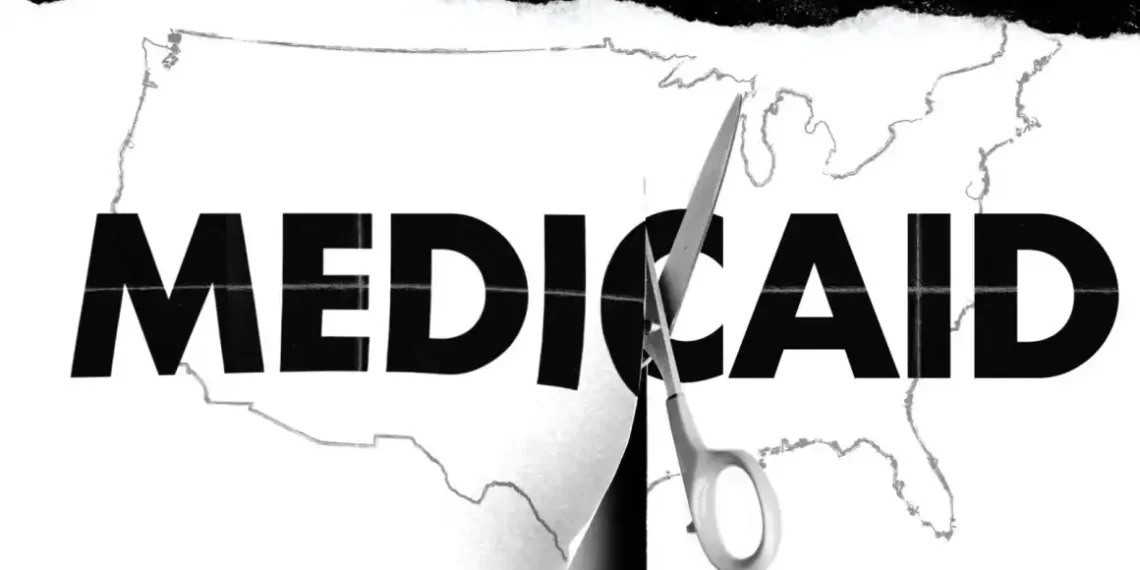House Republicans Push for Nearly $1 Trillion in Cuts to Medicaid and Food Stamps — Here’s Who Stands to Lose
In a bold move to reshape the nation’s social safety net, House Republicans are proposing nearly $1 trillion in cuts to Medicaid and food stamps. If passed, the sweeping legislation could result in millions of Americans losing access to essential healthcare and nutrition support — despite repeated promises by GOP leaders, including Donald Trump, to leave programs like Medicaid untouched.
Who’s at Risk?
The cuts would hit far more than just able-bodied adults not working, as GOP lawmakers suggest. Experts warn the reductions could impact:
- Children
- Seniors
- People with disabilities
- Low-income workers
- Caregivers and students
More than 71 million Americans rely on Medicaid, and another 42 million receive food stamps through the Supplemental Nutrition Assistance Program (SNAP). This proposal puts a sizable portion of the U.S. population in jeopardy.
Key Medicaid Changes: $700 Billion in Cuts
The House package slashes nearly $700 billion from Medicaid over the next decade, according to the Congressional Budget Office (CBO). The result? Over 10 million people could lose Medicaid coverage by 2034, with 7.6 million projected to be uninsured entirely.
A First in Medicaid’s 60-Year History
For the first time ever, certain adults ages 19 to 64 would need to work at least 80 hours per month — or participate in community service, school, or job programs — to keep their Medicaid benefits. The requirement, set to take effect in 2029, exempts some groups like pregnant women, medically frail individuals, and those with substance use disorders.
But there’s a catch: even people who are working or qualify for exemptions could still lose coverage due to complex reporting requirements.
“Millions could lose coverage simply because they can’t navigate the bureaucracy,” said Michael Karpman of the Urban Institute.
Collateral Damage: Hospitals and States
Hospitals — especially in rural and underserved areas — could be hit hard. With more people uninsured and states receiving less federal aid, hospitals may be forced to:
- Cut services
- Raise prices for insured patients
- Shut down altogether
Nursing homes and state health systems could also suffer as the bill limits how states tax health care providers — a major funding stream for local health programs.
Seniors, Dual Eligibles Also at Risk
The bill could delay streamlined Medicaid eligibility reforms until 2035, potentially pushing 2.3 million people, including seniors and those with disabilities, off the rolls.
And since Medicaid is the largest federal funding source for state budgets, cash-strapped states may have to cut optional services (like dental and home care), raise taxes, or slash other vital programs like education.
One projection from KFF says states would need to raise taxes by an average of 4% to compensate for the loss — ranging from 1% in Kansas and Wyoming to 11% in Louisiana.
Food Stamps: Work Requirements Expanded, State Burden Increased
Under the proposed bill, the rules around SNAP — the formal name for food stamps — would get significantly tougher.
Work Mandates Extended
Currently, adults 18–54 without dependents must work at least 20 hours per week to receive SNAP benefits for more than three months. The new bill would:
- Expand this requirement to adults up to age 64
- Include parents with children aged 7 to 18
- Make it harder for states to waive these rules during tough economic times
States on the Hook for Costs
For the first time, states would have to cover at least 5% of food stamp benefit costs by 2028 — and possibly up to 25% if they have high payment error rates. Administrative costs would also rise, with states covering 75% instead of the current 50%.
The result? Some states may pull back from the program or restrict access further.
“The work requirements could put 11 million people — including 4 million children — at risk of losing food aid,” said Ty Jones Cox from the Center on Budget and Policy Priorities.
A Blow to Local Economies
Independent grocers and local businesses are also sounding the alarm.
SNAP funding supports:
- 388,000 jobs
- Over $20 billion in wages
- More than $4.5 billion in tax revenue
“SNAP is not just food assistance — it’s an economic engine,” said Stephanie Johnson of the National Grocers Association.
What’s Next?
The proposal still faces a rocky path through Congress, with conservative and moderate Republicans battling over the details. The Senate is expected to make further changes.
But one thing is clear: If passed, this legislation would mark a historic rollback of federal support for healthcare and nutrition — potentially reshaping the lives of millions of Americans and the communities they live in.
This article was rewritten by JournosNews.com based on verified reporting from trusted sources. The content has been independently reviewed, fact-checked, and edited for accuracy, neutrality, tone, and global readability in accordance with Google News and AdSense standards.
All opinions, quotes, or statements from contributors, experts, or sourced organizations do not necessarily reflect the views of JournosNews.com. JournosNews.com maintains full editorial independence from any external funders, sponsors, or organizations.
Stay informed with JournosNews.com — your trusted source for verified global reporting and in-depth analysis. Follow us on Google News, BlueSky, and X for real-time updates.














